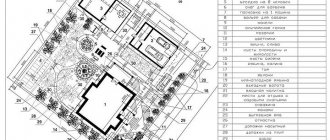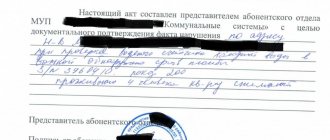After you have received your visa, you must carefully familiarize yourself with the visa regulations of the countries where you plan to travel. This will help avoid many problems.
ATTENTION : our lawyer on migration matters and issues will help you with the problem of violating the visa regime: professionally, on favorable terms and on time. Call today!
Let's look at the most common violations.
Registration deadline for foreigners in the Russian Federation in 2021
Based on Federal Law No. 109 of July 18, 2006 “On Migration Registration of Citizens and Stateless Persons in the Russian Federation,” upon arrival in Russia, persons with identity cards of other states are required to register with the migration service without fail.
Temporary registration is carried out in residential space owned or leased by the person inviting you to Russia. This could be a relative, an employing organization, or a close friend. Registration is carried out on a notification basis. Permission for registration is not required to be obtained from government agencies in advance. It is enough to apply with documents confirming your identity and place of registration to the authorized agency for migration issues. The nearest branch of the migration service, MFC or Russian Post is considered as such.
Citizens of different countries have different registration deadlines. They are no more than 90 days maximum. In some cases, it is possible to obtain a temporary residence permit (TRP), which gives the right to reside in the country for a longer period - up to 1 year. To do this, the applicant's identity must meet a number of requirements and have legal grounds for staying in the country for a long period.
Expert recommendation
The largest amounts of fines are established for organizations that issued invitations to foreigners to come to the Russian Federation for the purpose of performing work functions. They bear full responsibility for them, including the provision of living space, payment of wages, and registration of a medical insurance policy.
Representatives of the employer are required to appear at the offices of the Main Directorate of the Ministry of Internal Affairs to submit a notification about the employee crossing the border of the Russian Federation. Provide an employment contract, a work permit issued by the migration service. Cards for work are issued based on a quota approved by the state. Its validity period is limited, maximum 3 years.
Kobzev L.L., employee of the department of the Main Directorate of the Ministry of Internal Affairs for the Irkutsk region
The law regulates the right to stay in Russia on three legal grounds:
- with temporary registration;
- when applying for a temporary residence permit (TRP);
- with a residence permit (residence permit).
| Category | Temporary stay | RVP | Residence permit |
| Validity | From 90 days to 6 months | 3 years | 5 years |
| Registration procedure | Notification | According to quota and permission of the Main Directorate of the Ministry of Internal Affairs | In agreement with the Main Directorate of the Ministry of Internal Affairs |
| Extension | Within a maximum period of up to 6 months | Impossible | Allowed |
Responsibility of foreign citizens for violations of registration rules
Punishment for persons arriving from abroad and violating the rules of residence and migration registration on Russian territory is established by Art. 18.8 Code of Administrative Offenses of the Russian Federation. The fine for lack of registration or expired registration is set at 2-5 thousand RUB.
The same amount is collected if the foreigner cannot present documents confirming the right to reside or stay in the locality, and also if, during verification, the registration is found to be fictitious. In addition to penalties, violators may be deported.
Penalties are higher in Moscow and St. Petersburg. Here the amount is from 5 to 7 thousand rubles. Sanctions increase if the violator is caught for the second or subsequent time in a year - fine:
- 5-7 thousand RUB in Russian regions;
- 7-10 thousand RUB in Moscow and the northern capital.
According to administrative legislation, unregistered citizens can be expelled even for the first violation, however, this measure is usually used in cases of systematic non-compliance with migration registration rules.
If signs of a criminal offense are detected in the actions of violators, arrest and imprisonment are possible. The actions of citizens will be considered in accordance with the Criminal Code of the Russian Federation and international agreements.
The search for work is the main reason for the flow of representatives of countries from the former USSR. State labor policy is aimed at protecting the interests of Russians, therefore migrants can work in the Russian Federation only if they receive a patent or work permit.
Working without permits is punishable by a fine and deportation from the country. A monetary penalty is imposed not only for the lack of a patent, but also for work that does not correspond to the permitted profession, type of activity, or position. The amount of the fine is 2-5 thousand rubles. (Article 18.10 of the Code of Administrative Offenses of the Russian Federation), in Moscow, St. Petersburg and adjacent regions - 5-7 thousand rubles. Repeated punishment - 5-7 thousand rubles.
Foreigners can get a job only in the regions where the patent is issued. When changing territory, you must obtain a new document.
The rules for registering residents of other countries are established by Decree of the Government of the Russian Federation No. 9 of January 15, 2007, developed in accordance with the law “On Migration Registration...” According to the normative act, foreigners and stateless persons must be registered at their place of residence or place of stay.
Without registration, you are allowed to stay in Russia for up to 7 days. An extended period is provided for migrants from some CIS countries. Citizens of Tajikistan are allowed not to register for 15 days. Representatives of Belarus, Armenia, Kazakhstan, and Kyrgyzstan have the right not to register for 30 days.
You can only hire guests from abroad if they have a patent or work permit. When employing representatives of “visa” countries, the employer must issue a quota, invitation, work visa and other documents.
We invite you to familiarize yourself with: Fine for parking in a space for disabled people for legal entities © Lawyer Hotline
Responsibility for violation of migration legislation
Failure to comply with the requirements of regulatory legal acts in the field of labor law and population migration when hiring a foreigner will be grounds for administrative liability.
As of 2021, the employer provides the following types of liability for violation of migration legislation:
- for hiring a foreigner without proper paperwork (for example, without drawing up an employment agreement);
- for drawing up an employment contract with deviation from legal requirements;
- for employing a foreigner in the absence of a work permit issued by the Federal Migration Service;
- for registration of labor relations after the expiration of the work permit;
- for violation of the intended purpose of the work permit, i.e. attracting a foreigner not for the declared profession;
- for violation of the procedure and deadlines for notifying the FMS department upon employment.
In addition, during the work of a foreign specialist, violations of labor law standards may be identified, which equally apply to Russian citizens (for example, violation of safe working conditions).
It is necessary to take into account that the legislation provides not only for fines for violation of migration laws in relation to the employer, but also for the administrative expulsion of the foreign specialist himself. These facts are reflected in the act and resolution on bringing to administrative responsibility, drawn up by the Federal Migration Service.
Punishment of hosts for non-compliance with migration registration rules
| Circumstance | Legal basis | Punishment |
| Lack of registration or renewal. | Provided by Article 18.8 of the Code of Administrative Offences. | For individuals from 2,000 to 5,000 rubles. For Moscow and St. Petersburg, a fine ranges from 5,000 to 7,000 rubles. |
| Repeated violation | A fine of 5 to 7 thousand rubles, for cities of federal significance - from 7 to 10 thousand rubles. Removal is mandatory. | |
| Lack of registration of a foreigner by an employer with the status of a legal entity | Increasing the sanctions from 250 to 800 thousand for each person. |
Persons who sent the invitation, provided housing and employers are also held accountable for violations of the rules for registering foreigners.
When providing accommodation for a foreigner, it is necessary to notify the territorial migration authority. The period is 7 days from the date of arrival of the foreign guest (clause 3 of Article 20 of Law No. 109-FZ of July 18, 2006). Hotels, sanatoriums, tourist centers, as well as social organizations submit information no later than the next working day.
The fine for late registration of foreign citizens is (clause 4 of article 18.9 of the Code of Administrative Offenses of the Russian Federation):
- 2-4 thousand RUB for citizens;
- 40-50 thousand RUB for officials;
- 400-500 thousand RUB for legal entities.
The state bodies responsible for registering migrants are the territorial divisions of the Ministry of Internal Affairs of the Russian Federation. As a rule, special departments dealing with migration issues are organized. In St. Petersburg, the Unified Migration Center decides on the stay of non-residents of the country in the city. A similar structure operates in the capital.
Fine for a foreigner
Today in the Russian Federation an administrative fine is rightly considered one of the most common types of administrative punishment. The fine for a foreigner, being a type of administrative fine, is not only a common, but also an extremely difficult punishment from a financial point of view for business entities - individual entrepreneurs and legal entities.
For example, for the lack of a patent (i.e., a work permit), a fine for the work of a foreign citizen can cost an organization or individual entrepreneur from 250 to 800 thousand rubles. If the specified administrative offense is committed in territories specifically specified in legislation (Moscow, St. Petersburg, Moscow and Leningrad regions), then the fine for the work of a foreigner varies from 400 thousand to 1 million rubles.
Our video instructions on how to cancel or reduce the FMS fine
Usually the migration authority issues a fine at the lower level set by the legislator, but this does not make it any easier. Fine in the amount of 400-500 thousand rubles. may be prohibitive for any company. What can we offer and how can we help? - cancel the fine (not so often) - reduce the fine (more often than canceling the fine) - stall for time (3-4 months, if you let everything take its course, the fine will double)
Our podcast about how to avoid, cancel or reduce a FMS fine →
A fine for a foreigner is a very unpleasant thing also because the authorities that impose it rarely make concessions to “offenders”. Important note: a concession in a particular case does not mean that a government body or official mitigates your administrative punishment or completely releases you from it through some illegal actions. No, we are talking about an absolutely legal relaxation, the possibility of which follows from the content of Part 1 of Art. 4.1.1 Code of Administrative Offenses of the Russian Federation. In particular, we mean replacing an administrative fine with a warning.
A warning is simply a written disapproval of your misconduct. It is easy to guess that a warning, unlike an administrative fine, is not capable of causing any economic damage. Therefore, many entrepreneurs are no less pleased with the news about replacing a fine for a migrant with a warning than the news about exemption from administrative punishment in general.
So, in part 1 of Art. 4.1.1 of the Code of Administrative Offenses of the Russian Federation, the legislator names several conditions under which an administrative fine, including a fine for a foreign citizen, can be replaced with a warning. Let's call them:
- The offender is a small or medium-sized business entity;
- The offense is committed for the first time;
- The offense was established as part of the implementation of state or municipal control;
- A warning is not named by the legislator as an administrative punishment in the article of the Code of Administrative Offenses of the Russian Federation dedicated to this type of offense;
- The offense did not result in harm to the life or health of citizens, state security, etc.;
- The offense is not covered by the list of offenses for which it is prohibited to substitute a fine for a warning.
Above, we have already emphasized the rather large fines for the work of a foreign citizen. Let us note that the reason for a fine for the work of a foreigner may be not only the lack of a patent, but also other violations of labor and migration laws. However, an employer who is required to pay a fine for the work of a foreigner does not always commit an offense intentionally.
Let's give an example. Several years ago, the employer was actually fined by the Federal Migration Service for failing to distinguish between the content of the terms “conclusion of an employment contract” and “entry into force of the employment contract.” In particular, he entered into an employment contract with a foreign specialist in April, and the employment contract came into force in May. The employer considered that he must notify the FMS about the conclusion of the employment contract in May, when the document comes into force and the foreign worker begins to perform his work duties. However, the FMS (at that time this body was acting, not the Ministry of Internal Affairs) thought differently (in its opinion, it was necessary to send the corresponding notice on the date of conclusion of the employment contract) and imposed a fine on the employer in the amount of 400 thousand rubles. The employer tried to appeal the FMS fine, but to no avail. In passing, let us say that at the time of the proceedings there was no rule on replacing fines with warnings.
Thus, compliance with labor legislation in terms of regulating relations with a foreign worker largely depends not only on the desire of the employer, but also on his awareness of the nuances of legal provisions in this area. In view of this, of course, legal advice plays a paramount role here.
Let's say you have already unknowingly or knowingly violated the law and you have been given a fabulous fine for a migrant. Does this mean that legal assistance is pointless at this stage? Of course not. After all, a lawyer here can help you use the rule of Part 1 of Art. 4.1.1 Code of Administrative Offenses of the Russian Federation to limit it to one warning. Well, if we are talking about a situation where there was no fact of an offense at all, then qualified lawyers will help you cancel the fine for a foreign citizen without imposing any other administrative punishment.
Thus, we were recently contacted regarding the issue of a fine for a migrant under Part 4 of Art. 18.9 of the Code of Administrative Offenses of the Russian Federation, that is, we were talking about a violation not of labor, but of migration legislation. In particular, at the end of June 2021, in relation to our client (hotel), a decision was made to punish him in the form of an administrative fine in the amount of 400 thousand rubles. for committing an offense established by Part 4 of Art. 18.9 Code of Administrative Offenses of the Russian Federation. Briefly about this offense: hotels are required to notify the Ministry of Internal Affairs of the Russian Federation about the arrival/departure of a foreigner. From the contents of the resolution, it was seen that the citizen of Kyrgyzstan entered the hotel on March 21, 2019. When filling out a notification of his arrival, registration was issued from 03/21/2019 to 06/18/2019. However, according to information from the AS TsBDUIG system, it was established that this foreign citizen re-registered at a new address, and our client did not fulfill his duties and did not notify the Ministry of Internal Affairs of the Russian Federation about the departure of the specified foreigner.
We appealed this decision imposing an administrative fine in court, emphasizing the following:
- Our client admits that he did not notify the Ministry of Internal Affairs about the fact of re-registration, but did so without intent;
- Our client did not have the opportunity to notify the Ministry of Internal Affairs, since he did not know about the fact of re-registration of a foreign citizen. This circumstance is due to the fact that our client does not have access to the AS TsBDUIG database. Accordingly, our client does not have the opportunity to review the registration data of the mentioned foreign citizen online;
- The foreign citizen independently re-registered, did not notify our client, and therefore our client did not know about this fact. Subsequently, he learned about this only from the inspection authorities;
- Our client always takes a responsible approach to his legislative responsibilities, and this time, if our client had information about the fact of re-registration, he would have properly fulfilled his obligation to notify the Ministry of Internal Affairs, especially since it did not cause any special difficulties for him, since the preparation of the document notification would take about five minutes of time. However, our client did not have such an opportunity. Moreover, the foreigner regularly appeared at the hotel, which indirectly told our client that the former had no plans for re-registration;
- The foreign citizen’s accommodation was paid for until 06/08/2019, as a result of which our client had no assumptions about the possible intention of this foreign citizen to re-register;
- When making the decision, the Ministry of Internal Affairs of the Russian Federation did not fully examine all the factual circumstances that have legal significance for this administrative case. Only after examining all the circumstances of the case could the Ministry of Internal Affairs of the Russian Federation conclude about the presence or absence of evidence excluding administrative punishment for our client;
- Our client asks not to apply administrative punishment in the form of a fine, but to limit ourselves only to a warning in accordance with the norms contained in Art. 4.1.1 of the Code of Administrative Offenses of the Russian Federation, or reduce the amount of the imputed sanction below the lower limit, since our client meets all legally significant parameters named by the Russian legislator for the situation of replacing a fine with a warning.
So, if you are faced with the problem of imposing a fine on a foreigner, then you should not despair. We can help you overcome it in one of the following ways: 1) prove the absence of an offense under the Code of Administrative Offenses of the Russian Federation; 2) prove the need to replace the fine with a warning.
Registration of departure of a foreigner from Russia in 2021, notification procedure
The following situations are violations of migration rules in Russia:
- Failure to register with a unit of the Main Directorate of the Ministry of Internal Affairs is done in any available way.
- Expiration of the period of validity of the permitted stay in the Russian Federation - termination of the residence permit or temporary residence permit.
- Loss of documents - in this case, you should apply for restoration within 3 days from the date on which the specified circumstance was recorded. The application is written in any form.
- Fictitious registration – fraud, forgery of documents, provision of false information. There is deliberate deception, or an accidental mistake has been made, or legally significant facts have not been reported.
If a violation of migration rules is detected, a protocol is drawn up on the imposition of an administrative sanction by an authorized person. The document states:
- personal data of the citizen brought to justice;
- reference to the norm of the law on an administrative offense is the basis for imposing a sanction;
- the amount of the fine;
- a warning about the possibility of appealing the decision of the Main Directorate of the Federal Migration Service of the Russian Federation within 10 days from the date of receipt of the paper in an official manner - by hand delivery, by Russian Post.
When tourists arrive at hotels, registration is carried out by hotel staff. They contact the Main Directorate of the Ministry of Internal Affairs of the Russian Federation with notifications about registration. Foreigners are given receipts from notifications. They must keep them in their hands and present them, if necessary, to law enforcement officers who control the stay of migrants in certain territories. It is not allowed to move to another region of the Russian Federation without prior notification of the migration service.
In some cases, an amnesty is possible in relation to the imposed liability, both when convicted on the basis of the Criminal Code of the Russian Federation, and when the norms of administrative law are indicated in the protocol. Such situations include, for example, a serious illness or death of a relative, or being on a business trip in a remote area for a long time. When submitting an application, evidence of these circumstances must be provided.
You can appeal a fine if the accused citizen who invited the foreigner was staying abroad 7 days after crossing the state border of the Russian Federation. You can submit an application to the prosecutor's office and/or court. The complaint shall indicate all the circumstances of the case and attach documents confirming the circumstances.
Amnesty is possible by order of the highest officials of the state - the President of the Russian Federation. Release is also allowed when a crime is solved with the citizen’s assistance in solving the case and finding the perpetrators.
In the Russian Federation there is also a rule on the need to report to the migration service about the departure of a foreigner from the territory of the Russian Federation. This must be done by the host organization in Russia or a Russian resident - a citizen of the Russian Federation or a foreigner legally residing in the country.
We invite you to familiarize yourself with: Silence regime in an apartment building 2020 - compliance, time, law, violation, hours, rules, fines, responsibility
A notice with a registration mark must be submitted to the department of the Main Directorate of the Ministry of Internal Affairs of the Russian Federation at the place of stay of the foreigner abroad in Russia within 3 days from the date of departure abroad. The notification counter and the corresponding application are sent to the institution.
Common Mistakes
Error 1: Contacting the Main Directorate of the Ministry of Internal Affairs regarding the extension of the permitted period of stay in the Russian Federation after the expiration of the registration period.
– An application to extend the period of permitted stay in the Russian Federation must be submitted strictly before the expiration of the period for registration at the place of stay in Russia. Once the validity period of the document has expired, it will be considered late. Accordingly, the offense will be formed.
Question answer
Question 1: I came to Russia to work. The company registered me in an apartment that is registered as the property of a legal entity that is engaged in the construction of multi-storey residential buildings. However, they offered me to live at a different address - in an apartment registered personally in the name of the director. Wouldn't this be a violation of migration rules in the Russian Federation? I am from Minsk.
– Changing your place of residence to your actual one is prohibited by Russian migration legislation. If the employer indicated in the notification the address of an apartment that is registered in the name of a legal entity, then the foreign worker must live exclusively in this premises. When checked by the migration service, and this can happen suddenly, a fine will be imposed on the company.
Case Study
Ivanov O.O. arrived in the Russian Federation for the purpose of living with relatives on the basis of family restoration. He contacted the migration service and was given a period of permitted stay in the country of 90 days. A month later, he found a job and decided to get a work permit and stay for a longer time due to the availability of a position and earn extra money.
The Main Directorate of the Ministry of Internal Affairs explained to him that he could not extend his stay in Russia when concluding an employment contract. This is due to the fact that he came to Russia to live with his family and cannot be in the territory with any other intention. He needs to leave the Russian Federation and put a new purpose for being in the country on his migration card - “Work”.
In this case, the permitted period of stay will be extended. Otherwise, you will first need to obtain a temporary residence permit or temporary residence permit. These documents give the right to work on an equal basis with citizens of the Russian Federation. Otherwise, the registration will be declared invalid with the imposition of appropriate sanctions, including up to deportation abroad for a period of up to 5 years.
Appealing a decision to impose administrative liability
The trial ends with a court decision, which, in case of disagreement, can be appealed to a higher court. At the same time, do not forget about the ten-day period for appealing a judicial act.
Not only decisions in which, in your opinion, you were found guilty of committing an offense are subject to appeal; you can also argue with the imposed punishment and the non-application of the above conditions for release or reduction of punishment.
It should be taken into account that the organization has more than one right of appeal. If a higher court refuses to satisfy the complaint, then you will have the right to appeal even higher and so on up to the Chairman of the Supreme Court of the Russian Federation.
To carry out the actions specified in this article, the assistance of our experienced specialist - a lawyer is required: at all stages, from conducting an inspection to the final appeal of a judicial act.
Foreign specialists who arrived in the Russian Federation from other countries are hired in accordance with Article 59 of the Labor Code of the Russian Federation (for more information about hiring a foreign citizen with a patent, temporary residence permit or residence permit, follow the link). In this case, the following are included in the TD:
- list of permits;
- details of the contract for service at a medical institution or policy.
- Over the past three years, every employer that employs a foreign citizen must notify the migration authorities about this. Only after this the employee is given a certificate of concluding an employment contract. If you exclude at least one of the listed stages, then fines for late notification of the hiring and dismissal of foreigners will be an inevitable result.
In addition to the notification, copies of such documents as:
- an identity document containing a stamp of entry into the country;
- work permit;
- air tickets or documents replacing them.
What can an employer be held accountable for?
The responsibility of companies and entrepreneurs for attracting foreign workers is very high. This is due to the protection of the labor rights of Russian citizens, control of migration processes, and compliance with quality standards of working conditions.
The Administrative Code contains a large number of offenses for which the employer can be held accountable. Large monetary sanctions are provided for the inviting party (Article 18.9 of the Code of Administrative Offenses of the Russian Federation):
- for violations of the rules for the transit of people through the territory of the Russian Federation (clause 3);
- in case of incorrect execution of documents (clause 1);
- for false information about the purpose of the foreigner’s visit (clause 6);
- for failure to take measures for the departure of invitees (clause 2);
- if the inviting party does not provide housing, medical care, or material support (clause 5).
A separate article of the code provides for punishment for providing work to non-residents in violation of the established procedure. Let's consider what the penalty is for these offenses.
Companies and entrepreneurs who illegally use the labor of workers from other countries in their activities are subject to fines for hiring foreign labor without permission. Not only companies, but also ordinary citizens can be punished for having foreign workers.
The fine for employing a migrant without a patent or work permit is (Article 18.15 of the Code of Administrative Offenses of the Russian Federation):
- 2000-5000 rub. for citizens (in both capitals, Leningrad and Moscow regions 5000-7000 rubles);
- 25,000-50,000 rub. for responsible persons (in federal cities and adjacent territories 35,000-70,000 rubles);
- 250,000-800,000 rub. for companies (in Moscow, St. Petersburg from 400,000 to 1,000,000 rubles).
In addition to monetary penalties, suspension of the activities of a legal entity for a period of 14 to 90 days is provided. Additional sanctions apply when employing workers without special permission (for visa countries) or failure to notify regulatory authorities.
Let's sum it up
Russian migration legislation is quite confusing, and it is sometimes difficult for a non-specialist to understand it. Errors, late submission of documents, as well as unprofessional actions of employees authorized to maintain migration records can lead to the deportation of foreign citizens and large monetary penalties.
has been dealing with issues of legalization of stay and work of foreigners, as well as stateless persons, for more than 10 years. The experience of our employees allows us to solve the most complicated problems in the migration field. If the registration of a foreign citizen has expired, we will tell you what to do. We offer services to citizens coming from other countries, as well as employers interested in attracting foreign workers.
We suggest you read: How and which pneumatics to choose for hunting
Methods of paying a fine for an administrative violation in the Russian Federation in 2021
There are several ways to deposit funds to pay the fine:
- through a banking institution - upon presentation of bank details;
- through the Main Directorate of the Ministry of Internal Affairs of the Russian Federation - through the cash desk;
- in the terminal - it can be found in a bank or shopping center, in the subway, and other public places;
- online when using Internet banking services.
After paying the bill, you need to provide a receipt to the migration service, preferably to the person responsible for monitoring the imposition of administrative fines. Information about debt coverage is immediately sent from the bank to the database of the Main Directorate of the Ministry of Internal Affairs of the Russian Federation, but the receipt should be kept for 3 years. This is exactly how long it takes to bring someone to justice.
The following are the main administrative offenses and the fines that correspond to them.
- Violation of the entry regime into the Russian Federation. When a foreign citizen (or stateless person) visited the Russian Federation in violation of the established procedures for entry into the territory, did not have the appropriate documents and did not notify of their loss, and also did not leave Russia within the period established by law, he is subject to an administrative fine in the amount of 2 to 5 thousand rubles with or without optional administrative expulsion from the Russian Federation.
- Failure to comply with the stated purpose of the visit to the Russian Federation with the actual one is accompanied by an administrative fine in the amount of 2 to 5 thousand rubles with optional administrative expulsion from the Russian Federation.
- Failure to fulfill the obligations to carry out migration registration by the receiving party is punishable by an administrative fine, which may vary depending on who it is imposed on. For individuals, the fine is from 2 thousand to 5 thousand rubles, for officials - from 40 thousand to 50 thousand rubles, for legal entities - from 400 thousand to 500 thousand rubles. The fine is imposed for each foreign citizen separately. That is, for example, if a legal entity has not fulfilled its obligations to register two people, then the fine can be up to a million rubles, an individual - up to 10 thousand, and so on.
- Engaging an illegal foreign citizen to work without work permits or in situations where the employer does not have permission to attract foreign labor is punishable by a fine, which varies depending on who the offender is. For individuals, a fine is from 2 thousand to 5 thousand rubles, for officials in the amount of 25 thousand to 50 thousand rubles, for legal entities - from 250 thousand to 800 thousand rubles, as well as administrative suspension of work for a period of up to 90 days. Administrative punishment is borne not only by the employer, but also by a foreign citizen, who is subject to an administrative fine in the amount of 2 to 5 thousand rubles with optional administrative deportation from the Russian Federation.
- Failure to notify government agencies when recruiting foreign citizens to work is punishable by an administrative fine. For individuals, the fine will be from 2 thousand to 5 thousand rubles, for officials it will be from 35 thousand to 50 thousand rubles, for legal entities - from 400 thousand to 800 thousand rubles.
- A repeated administrative offense committed within a year from the previous one is accompanied by a fine in the amount of 5 to 7 thousand rubles. Accompanied by optional administrative expulsion from the territory of the country. The nature of the offense in this case is not fundamental.
Fines for criminal offenses
The following are the main criminal offenses and the penalties that correspond to them.
- If there is a purposeful organization of illegal entry into the territory of Russia of foreign citizens, as well as stateless persons, if their illegal transportation or stay is organized, then this may be punishable by a fine of up to 0.3 million rubles, 18 times the salary.
- If a foreign citizen is fictitiously registered at the place of residence in a Russian residential premises, then all this can be punishable by a fine of one hundred to five hundred thousand rubles.
- If there is a fictitious registration of a foreign citizen in any residential premises located on the territory of the Russian Federation, then this may be punishable by a fine of one hundred to five hundred thousand rubles or the equivalent in wages for a specified period of time.
If a fake document was used, this may be punishable by a fine of up to eighty thousand rubles or a fine in the amount of salary for a period of up to six months.
The concept of fictitious registration for foreigners in the Russian Federation in 2021
Fictitious registration means a citizen’s residence in a place other than that indicated in the registration notice. Such an act is qualified under Article 322.2 of the Criminal Code of the Russian Federation and is considered a criminal offense, that is, it constitutes a crime.
The following sanctions are considered as sanctions:
- imposition of a fine;
- deprivation of liberty;
- forced labor.
If such a violation is committed, the owner of the property in which the foreigner was registered is held accountable if he has signed the registration. In practice, the following signs of fictitiousness stand out:
- violation of the standard for living space per person - the standard is determined differently for each region, for example, in Moscow and the Moscow region, each resident must have at least 10 sq.m.;
- temporary registration in housing that is not suitable for living - if it is recognized as emergency, threatening collapse by order of the local administration;
- registration of a foreigner or stateless person in a small area - if the owner owns a small share, for example, 1/20 or less.








